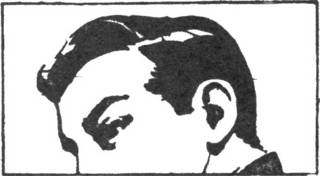Just when did ‘Bollywood’ become a synonym for the Hindi film industry? The word entered common parlance sometime in the 90s, though of course it was in use earlier than that. The
standard explanation of the word's origins attributes its creation to an apocryphal film journalist who is said to have coined the term in the late 70s: many people assume this refers to Shobha De, then editor of
Stardust, but I don't think she's ever staked her claim to the invention of Bollywood. Among those who
have claimed this dubious achievement are the producer (and frequent columnist)
Amit Khanna, and an erstwhile Cine Blitz journalist, Bevinda Collaco.
Amit Khanna, who claims to have coined the word in one of his columns way back in the late seventies, says it arose from a certain situation. The new wave or parallel cinema was emerging those days and it would have been wrong to group this kind of cinema with the prevalent popular cinema which the Bombay film industry represented... Hence Bollywood emerged as a term to describe popular cinema. (Nandita Puri, 'Is Bollywood an imitation of Hollywood?', Mid-Day, Nov 8, 2002)
I was given a studio beat to do. I was not happy with the name of the column Studio Roundup and thought of `Flipping around Follywood', but it sounded too harsh. I settled for `On the Bollywood Beat' instead... While I worked at Cine Blitz in 1978, 79 and 80, I used the word prolifically, but I never thought it would get official international usage. Actually I don't know whether to laugh or to cry when I see my word become common usage. (Bevinda Collaco quoted in 'On the Bollywood Beat', The Hindu, Mar 7, 2004)
Turns out you don't need to believe either claim, because the Oxford English Dictionary, which included an entry for ‘Bollywood’ for the
first time in 2001, provides an earlier citation:
Soon after she had given up the role of Rani Maqbet..she left Ravi Kumar to go to Dhartiraj. My revelation she had done that was the greatest sensation ever to come out of Bollywood. (H.R.F. Keating, Filmi, Filmi, Inspector Ghote, 1976)
So did Keating coin the word? I doubt it. He wrote many of the Inspector Ghote mysteries before he'd ever visited India: lacking first-hand experience, he studied newspapers and magazines to construct the background of his stories. So it seems more likely that he came across the word in print somewhere.
Perhaps it's worth mentioning here that 'Tollywood', as a name for the Calcutta film industry was in circulation long before anyone had ever heard of Bollywood. The term is a portmanteau, Hollywood and Tollygunge (the area in Calcutta where many film studios were located) packed up into one word.
JS magazine used it liberally in the late 60s and early 70s, so it isn’t unlikely that someone thought up ‘Bollywood’ as a variation on the joke about the same time.
I checked on Google to see if anyone else had come up with this theory, and discovered
this article by Madhava Prasad in Seminar, which voices the suspicion ‘that it was the trendy and smart young JS journalists who first adopted this way of slotting Hindi cinema into their otherwise largely Eurocentric cultural world’. Wade through the petulant jargon of the piece, and you’ll find this passage which traces an unlikely origin for Tollywood:
In 1932, Wilford E. Deming, an American engineer who claims that ‘under my supervision was produced India’s first sound and talking picture’, writing in American Cinematographer (12.11, March 1932), mentions a telegram he received as he was leaving India after his assignment: Tollywood sends best wishes happy new year to Lubill film doing wonderfully records broken. In explanation, he adds, ‘In passing it might be explained that our Calcutta studio was located in the suburb of Tollygunge… Tolly being a proper name and Gunge meaning locality. After studying the advantages of Hollygunge we decided on Tollywood. There being two studios at present in that locality, and several more projected, the name seems appropriate.
Deming was a sound technician who worked on the earliest song-and-dance movies made in India, including the first talkie,
Alam Ara, so I guess we should conclude our archaeological dig right here... till the time someone turns up evidence of
Phalke in Phollywood.

